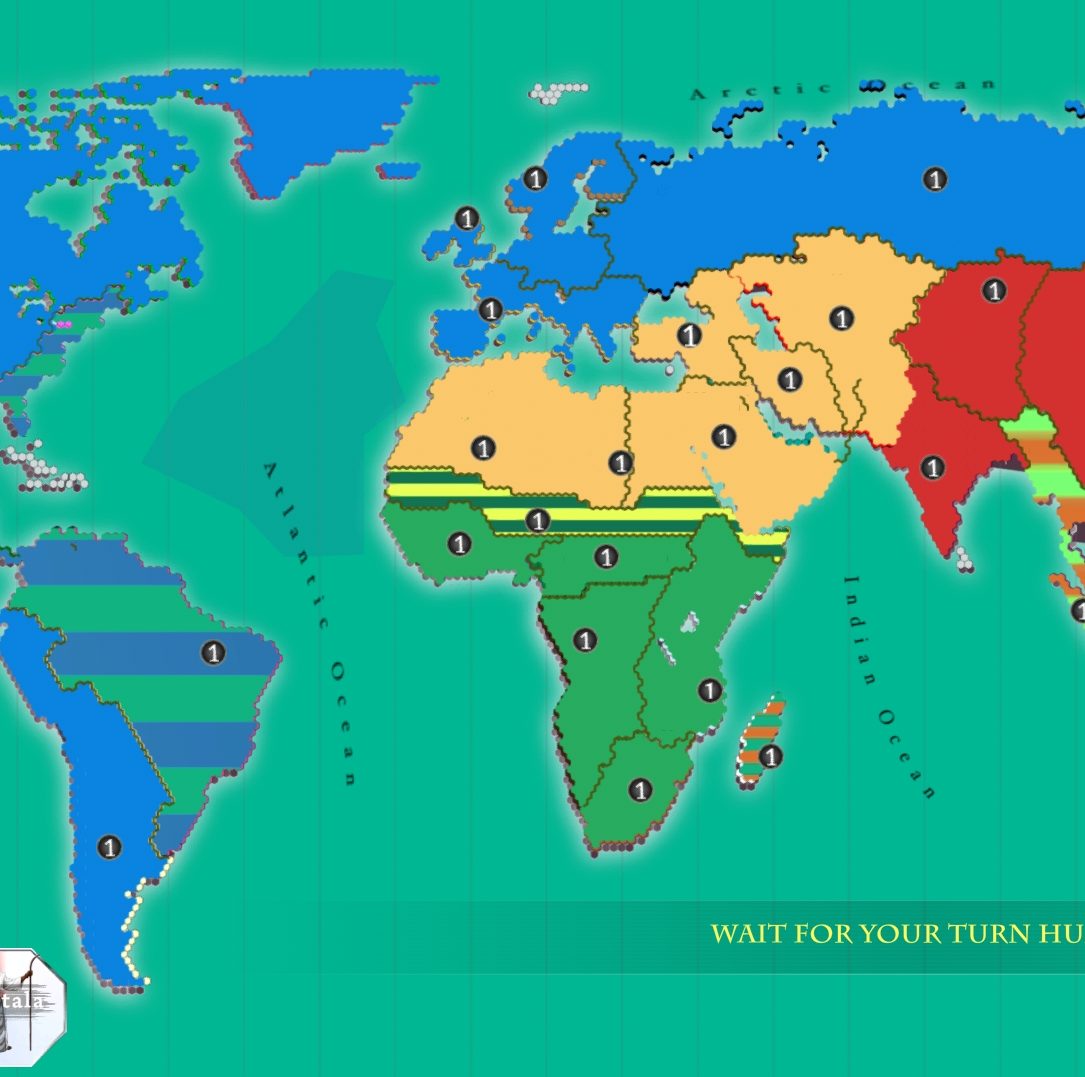Prince Justice Faloye
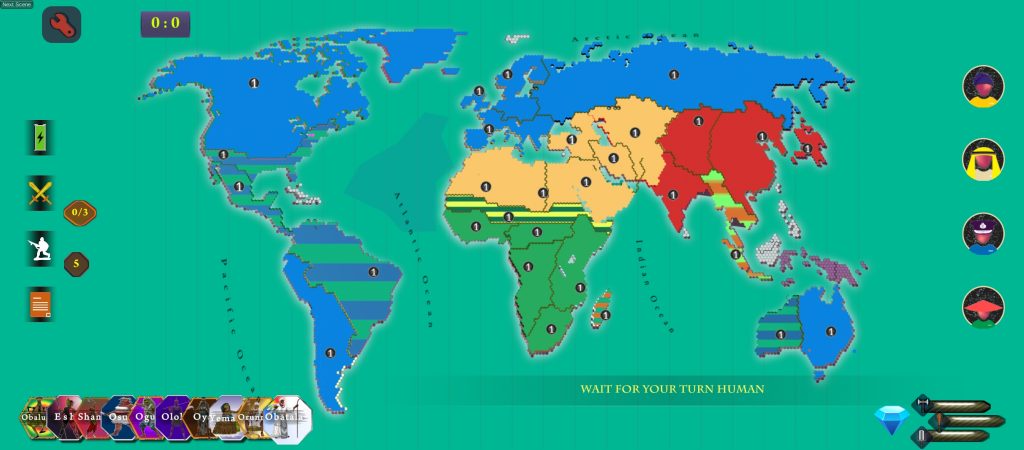
Contemporary critics of tribalism that advocate universalism miss the key element in human conglomeration which is civilizationism, without which neither nationalism nor Pan Africanism can work. I was inspired to write this article first as a response to the Rothschild’s publication, The Economist, article on how Europe was moving towards civilizationism, without the author examining the different phases of European tribalism, nationalism and civilizationism on the global stage. Then, Prof PLO Lumumba’s video on African tribalism, pointing to the fact that both Africa and Europe alike have tribalism. Most important was his belief that we should adopt universalism and also in the same vein advocated a more ideological approach to politics. The problem is even universalism like modernism has Western civilizational philosophical foundations. And, every human organization has to be guided by a narrative from origins to aspirations based on specific philosophical and moral values.
Prof Lumumbas citing of President Julius Nyerere example is flawed because he overlooked the fact that Nyerere suppressed tribalism not by articulating the common civilizational traits of the Tanzania indigenous groups to unify them, but imposed Afroasiatic Swahili in continuation of European coloniality. East Africans, especially Tanzanians, lack powerful populous tribes that can resist subtle Afroasiatic cultural imperialism like Yorubas and Igbos, the two most populous Indigenous African groups, have resisted Afroasiatic/Afro-Arabic imperialism and the imposition of Hausa, the West African Afro-Arabic trade language, like Swahili is the East African Afro-Arabic trade language. Due to the comparatively arid geography that made Eastern Bantus migrate often, robbing them of long territorial histories, when European colonists arrived they claimed to have rented the coast from the Zanzibar Arabs whose trade language with indigenous Africans was Swahili. It was this coloniality that Nyerere insitutionalized to make Swahili the unifying language, suppressing the cultural identity of the Sukuma etc. The jury which is time is still deciding on Prof PLO Lumumba second reference, Rwanda where the Western imposed Tutsi minority government of Paul Kigame forcefully robbed the Hutu majority of their ethnic identity, and time will tell if and when a Hutu president comes to power, if ever.


The universalists that jump from tribalism to universalism without civilizationism will only entrench divide and rule as competing tribes divisively competitive for validation and empowerment of the civilization whose philosophy is the foundation of the universalism, better known now as Western globalists. Therefore Africans must approach universalism only after they have articulated their own civilizational narrative and values.
Essentially Africa is composed of two civilizations – Original Africans and Afroasiatic civilizations. Indigenous Africans share the same genetic and cultural origins and linkages, and are a continuum of dialects known as the Niger Congo languages like Yoruba, Igbo, Akan, Kongo, Kikuyu, Zulu. They still retain their traditional institutions and African Binary Complementarity philosophy. Afroasians are products of different waves of Eurasiatic and Afroasiatic imperialism that changed their languages, philosophy and institutions to Binary Opposition philosophy.

For indepth understanding, we must evaluate the differences between Original African and other Eurasiatic civilizations (Judeo-Christian, Arabic and Buddhist). It is pertinent we understand the different evolutionary phases and their underlying philosophies fashioned by their enabling environments. Original African civilization, being the first and oldest, is different from the Eurasiatic civilizations. It is much easier to understand when we categorize African civilization on the basis of an Osun philosophy of common origins and brotherhood in a bountiful environment, as opposed to the Eurasiatic civilization based on the philosophy of war necessary in the freezing arid wildernesses that imbibes a sense of scarcity and need for control.
The Indigenous African civilization is based on natural laws understood from evolution of humans from hunter gatherers to settled communities that spread across Africa and Asia with Ifa-Afa-Iha-Fa-Efa the global civilizational narrative. Eurasiatic civilizations were forcefully amalgamated through wars, especially those of the Greco-Roman that used surplus food from conquered North Africa to attract other Whites into Europe from the Central Asian mountain cave complex, and used Christianity and the inverted cross sword in the Spatha movement to rid Europe of it’s Black indigenous population, as done across Southern Asia.
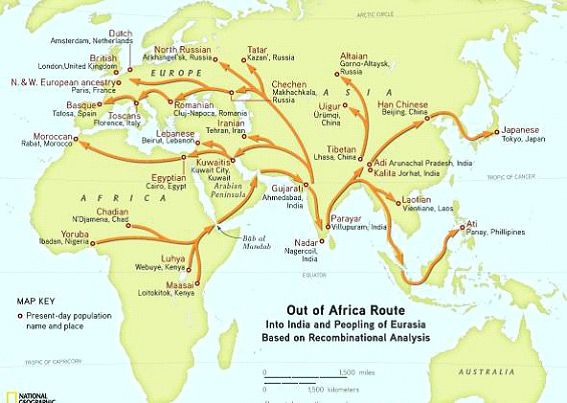
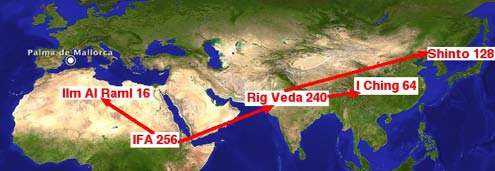
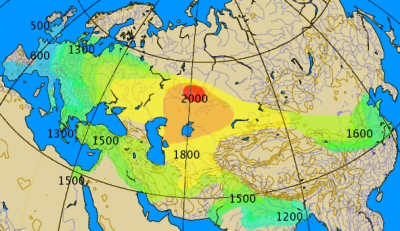
From about 7,000BC, Eurasians started coming out of the Central Asian cave complex to join the already established Black civilizations. In what is academically known as the Iron Age, astrologically the Age of Aries (2000BC to 1AD), Age of Ogun and Ajagungbade, and biblically (Revelations 6:1) the Age of the Apocalyptic First Horseman, when the lightskinned used horse chariots and bows and arrows to annihilate established African civilizations from Egypt to Mesopotamia to Iran to Indus Valley civilization to South China. In what is called the First Axial Age from 700BC to 1AD, Eurasians began to adopt African civilizational tenets as their own. The Greco-Roman classical philosophies were crafted from Black Egyptian philosophies while Hinduism, Buddhism and other Asiatic civilizations used African Ifa-Afa-Iha-Fa-Efa civilizational tenets from the Indus Valley to compile their Rig Veda etc. In doing so after the unjustified killing of Blacks, they had to engage in religious dogma and positive laws to justify their actions and existence.
The Roman Catholic Empire crystalized an Abrahamic civilization funded by sharing their exploits of African food and gold. However when Afroasians realized that Rome and it’s religious dogma skewed the sharing of African resources towards fellow Europeans, they split the civilization into Christian European and Islamic Arabs since the African trade passed through their lands. When the Roman Empire eventually found a sea route to bypass the Afro-Arabic lands, Pope Alexander VI June 7th 1494 Treaty of Tordesillas skewed the benefits of African and South American exploitation to the Iberians (Spanish/Portuguese), resulting in the French and British revolting and once again Europe went back into tribalism. The African exploitation that prompted the falling back to tribalism also inspired the concept of nationstates, first by the Dutch in mid-1600s that wanted to keep their African exploits to themselves away from the Roman Catholic and French empires, and finally in the post Napoleonic Wars 1815 Congress of Vienna treaties that globalized the concept of nationstates.
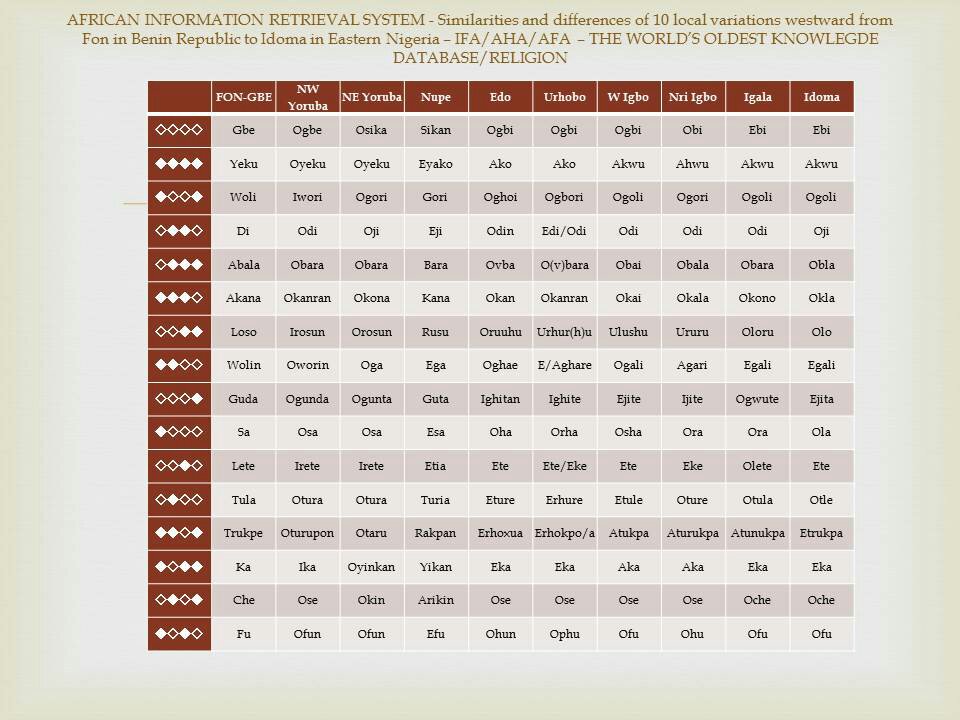
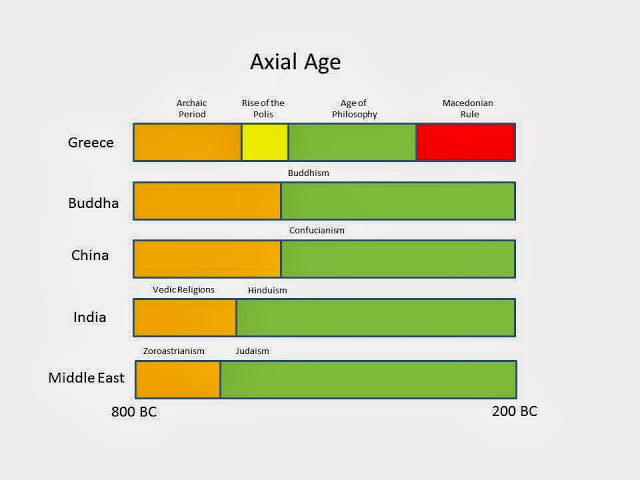
Following the Haitian Revolution that brought the beginning of the end of transatlantic slavery, the need for extended economic nationalism for resources brought about the colonization of African territory as part of European nations. Most important is that Europeans came together as a civilization at the Berlin Conference to wage the civilizational war against Africa for money, once again showing that war and money was the foundation of Eurasiatic civilizations. After the colonization of Africa as a civilization, they once again fell back to tribal nationalism, though they retained the semblance of a civilization that had been inspired by Queen Victoria and the mid 1850s creation of European Conservatism after slavery that resulted in the formation of the British Conservative Party, Republican Party and Christian Democratic parties. Nevertheless, the European tribal nations, especially Germany, resorted to a war over colonies later renamed the First World War. The Second World War was a retrial by Germany to get more colonies off weaker nations like France. The aftermath of the two European tribal nations wars for colonies known as World Wars, the largest European ethnicity, the Russians sought to get a level playing global marketplace by arming the freedom of the African colonies. With the loss of the colonies, Europeans once again came together as a civilization under the auspices of the European Union, which was clearly civilizational as the majority of them opposed the inclusion of Afroasiatic Turkey. The Economist article claiming Europe was just resorting to civilizationism is half truth.
With the outline of the dynamics of Eurasian tribal and civilizational identities and aspirations, it is necessary to understand the difference to the African experience. It is fashionable to label the continuum of 2240 dialects that make up the Niger Congo ethnolinguistic family as tribes, but the continuum of Indo European dialects as civilized nations, which in reality are tribal nations with an encompassing civilization. The irony is the Original African civilization was colonially balkanized into so called African tribes by European tribes that unified as a civilization.
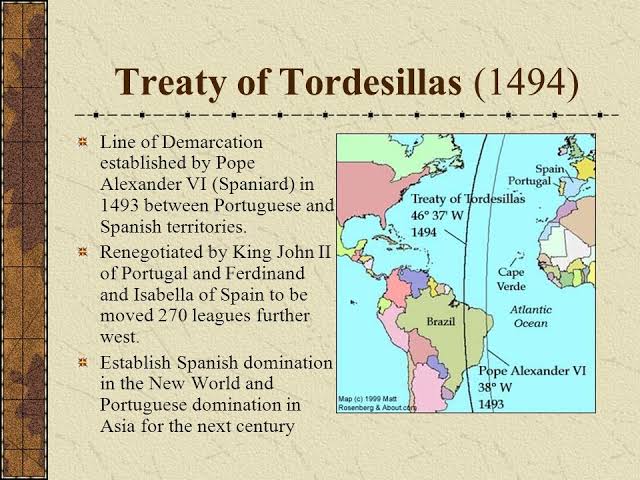
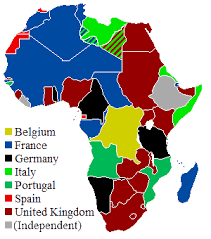
In the African case, unlike the Europeans that moved from tribal to civilizational perspectives with conquest and quest for resources, Africans existed as a civilization right from the beginning without the need for tribal identification caused by scarce resources. The change came with the 1415 European takeover of Ceuta Morocco and dumping of weapons across Africa to fuel the slave trade, before finally colonizing Africa. Though guns were used to overrun and colonize Africans, guns were not the most important aspect of the African balkanization, but epistemicide and coloniality that denigrated and derailed our traditional knowledge banks and obscured our civilizational identities. The replacement of our African Information Retrieval System aka Ifa-Afa-Iha-Fa-Efa with Western civilizational education was to obscure our common origins, philosophies and worldviews. Their Western academia made sure that our history was inconclusive either by skewed archaeological surveys towards East Africa while neglecting West Africa, and the deliberate inconclusivity of DNA results to obscure the West African origin of humanity that could furnish civilizational unity.
Also, the European colonists employed institutional violence to institutionalize the balkanization of the Original African civilization when they divided it’s core and heartland into three. First, in 1914 by adding the Northern part of the Original African civilization known as Middlebelt with over 300 indigenous groups to the Northern Afroasiatic civilization of the Northern Protectorate, then on April’s Fools day 1939, split the Original African civilization colonized as the Southern Protectorate into Western region of Yorubas and the Eastern Region of Igbos and Deltans minorities, thereby splitting the anticolonization movement created by the two most populous Indigenous African groups, leading to divisive debilitating sibling rivalry till date
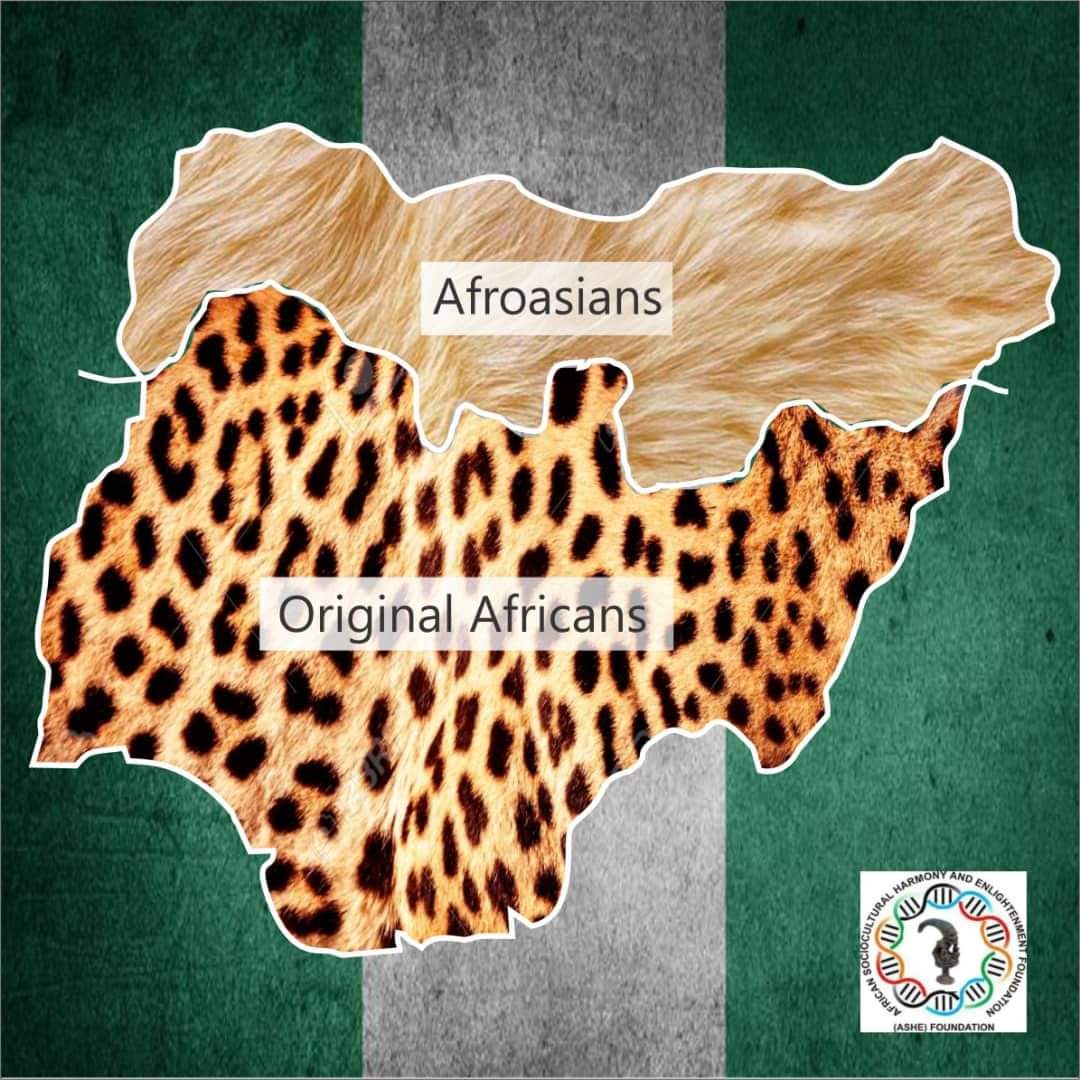
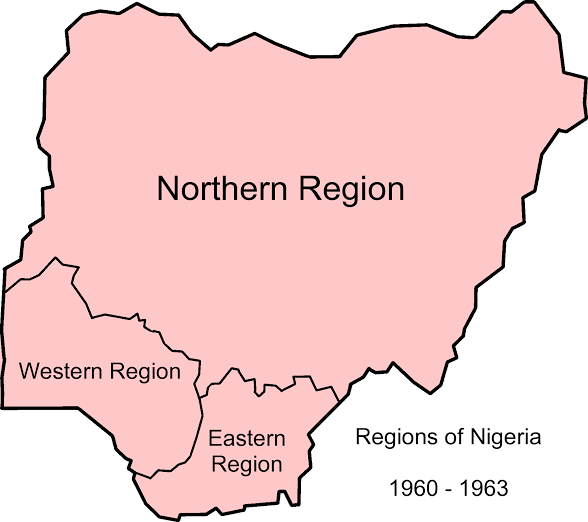
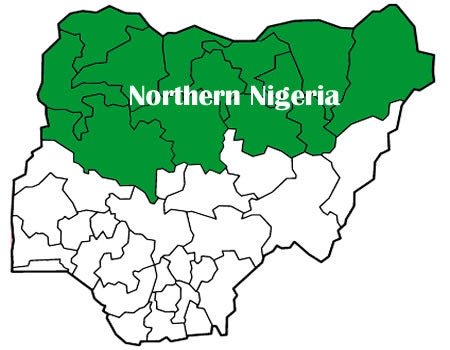
The task at hand is for African scholars to articulate and unite indigenous Africans as a civilization to enable us compete fairly with other civilizations. Humans naturally seek the comfort of big groups from clans to tribes to nations to civilizations then universalism, so it is redundant to tell Africans to shun tribalism for a void or for universalism where they will be tribes against other civilizational blocs. Civilizational destitutes. The African has to adopt civilizationism for political and economic development, not only in their respective neocolonial nations but in the African Union where the Afroasiatic civilization is united and have an unfair advantage over the disparate indigenous tribes and nations without a sociopolitical narrative from common origins to collective aspirations based on our common civilizational philosophical values. The question is whether we can achieve civilizational unity through education or the impending proxy war by the world powers or Abrahamic wars that will force us to unite as a civilization or perish.
